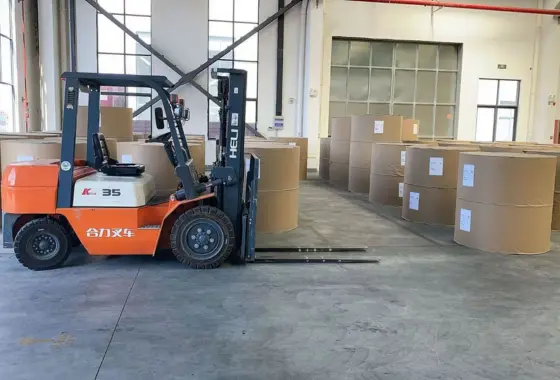 GOLDEN PAPER
GOLDEN PAPER
 GOLDEN PAPER
GOLDEN PAPER
Packaging plays a crucial role in our daily lives, ensuring the protection and transportation of various products we use. However, with increasing environmental concerns, it becomes essential to evaluate the eco-friendliness of different packaging materials. In recent years, packaging paper has gained popularity as a sustainable alternative. Golden Paper Group, as one of the most proficient paper board manufacturers, we will explore whether packaging paper truly lives up to its eco-friendly reputation in this article.
Packaging paper is predominantly derived from renewable resources, such as trees. Unlike plastic materials, which are derived from non-renewable fossil fuels, packaging paper has a significantly lower environmental impact. Moreover, most packaging paper is biodegradable, which means it naturally degrades over time without leaving harmful residues behind.
Additionally, paperboard packaging can be recycled multiple times, reducing the need for raw materials and energy consumption. By opting for packaging paper, we can contribute to preserving forests and reducing carbon emissions associated with the production and disposal of non-biodegradable packaging materials.

One of the key advantages of packaging paper is its low energy consumption during production. Compared to plastic packaging, which requires high energy inputs, the manufacturing process of packaging paper is less energy-intensive. This results in reduced greenhouse gas emissions and a smaller carbon footprint.
Furthermore, recycling packaging paper requires less energy compared to recycling plastic, further reducing environmental impact. By minimizing energy consumption and emissions, paperboard packaging solutions proves to be a greener option for packaging needs.
One of the major concerns with traditional packaging materials is their contribution to waste accumulation. Plastic packaging, in particular, takes hundreds of years to degrade and often ends up polluting our oceans and landfills. In contrast, packaging paper decomposes relatively quickly, thereby mitigating the potential harm caused to the environment.
Moreover, packaging paper can be easily separated from other waste streams, simplifying the recycling process. This ensures proper waste management, facilitating the recovery of valuable resources and reducing the burden on landfills.
Considering the increasing global focus on sustainability and environmental conservation, packaging paper emerges as a viable eco-friendly alternative to traditional packaging materials. Its sustainable nature, low energy consumption, and biodegradability make it an attractive option for both businesses and consumers. By choosing packaging paper, we can reduce our carbon footprint, protect natural resources, and contribute to the overall well-being of our planet.
In conclusion, packaging paper represents a significant step towards eco-friendly packaging solutions. Its attributes, including renewable sourcing, low energy consumption, and biodegradability, make it a highly sustainable choice. Raising awareness about the benefits of packaging paper and encouraging its usage can help in fostering a greener and more sustainable future for packaging. So, the next time you're considering packaging options, remember the positive impact of packaging paper on the environment.